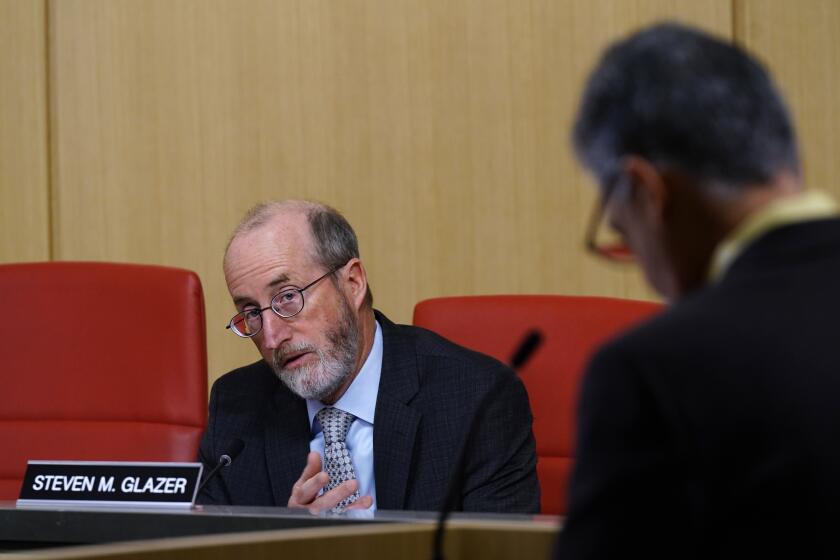Cingular Picks GSM for Cell Upgrade
Cingular Wireless said Tuesday that it has chosen the world’s most popular mobile phone technology for an all-digital $3-billion upgrade of its national network as it moves toward speedy next-generation services.
The decision of Cingular, the No.2 mobile provider in the United States, is a blow to a competing technology, CDMA, or code division multiple access, developed by Qualcomm Inc. of San Diego.
CDMA has been deployed mostly in the United States and South Korea, and about 70% of the world’s wireless carriers use GSM, or global system for mobile telecommunication, which is especially dominant in Europe.
“GSM is clearly the world’s choice for wireless technology,” said Stephen Carter, president and chief executive of Atlanta-based Cingular.
It is deployed in more than 160 countries, where so-called tri-band GSM phones can be used seamlessly.
AT&T; Wireless Services Inc., the third-largest U.S. mobile provider, also has selected GSM technology, as has VoiceStream Wireless Corp.--with whom Cingular has entered into a joint venture to share cellular networks in California, Nevada and New York.
The choice of GSM will represent about $3 billion in new business for European telecom firms Ericsson, Nokia and Siemens, although much of that estimate includes the building of new capacity, Cingular officials said. Those companies build network infrastructure and handsets.
A joint venture between SBC Communications Inc. and BellSouth Corp., Cingular already uses GSM technology in California, Washington, Nevada, the Carolinas, eastern Tennessee and coastal Georgia and gained access to the New York market through a network-sharing agreement with VoiceStream.
Cingular has relied on older technology called TDMA, or time division multiple access, for its other markets.
TDMA is not designed to handle the speeds or services people increasingly are demanding from digital technology, including e-mail, text messaging and Web surfing.
Cingular expects to conclude the network upgrade in most of its markets by the end of 2003, said Bill Clift, Cingular’s chief technical officer.
The upgraded service--Edge, enhanced data rates for global evolution--relies on a technology mix of GSM for voice calls and GPRS, or general packet radio service, for data connections. The upgrade will offer data transfer speeds about 10 times faster than current cell phones.
That combination is often dubbed “2.5 generation” technology because it is considered a precursor to the so-called third generation, or 3G, of faster wireless services not expected until at least 2003.
Cingular chose GSM partially because of cost factors--the company will have to switch only 70% of its markets--and expects to achieve savings from bulk equipment purchases, Clift said.
GSM-equipped telephones also are $25 to $30 cheaper than CDMA phones, he said.
Analysts said Cingular’s choice probably would have little effect on Qualcomm because the Edge technology is an interim step between the so-called second-and third-generation services, said Peter Friedland, a telecom analyst with WR Hambrecht & Co.
Qualcomm stands to gain in the future as wireless companies move to 3G, which would allow cell phones to make a qualitative jump to video transmission, Friedland said.
Still, based partially on the Cingular news, Qualcomm shares fell nearly 7%, or $3.61, to $48.69 on Nasdaq.
A Qualcomm spokeswoman did not immediately return a call for comment.



